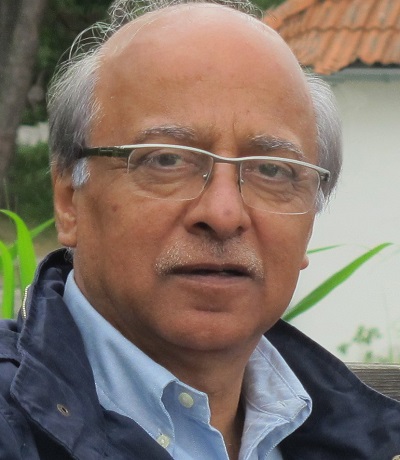By Imtiaz Gul
For the first time in over seven decades of their existence, two south Asian rivals India and Pakistan chose to use the solemn moment of “fast-breaking” in the evening to openly display acrimony and score-settling. End of May, the High Commission for Pakistan in New Delhi invited nearly 175 guests to its annual iftaar (fast-breaking) get together – a regular feature every Ramadan. However, only 25 invitees could make it into the High Commission.
Why?
The security establishment had raised multiple walls to block entrance to the diplomatic mission. Almost all Indian guests were photographed, and discouraged to attend – both verbally and through physical barricades; something never witnessed before in the month of Ramadhan. Dirty petty politics was at play, it seemed, as guests left in dismay.
Two days later – on June 1 – most of the over 500 guests that the Indian High Commissioner in Islamabad had invited for an iftaar suffered the same fate; most approaches to the venue were blocked by security and intelligence personnel in what turned out to be a classic case of “tit for tat”. Less than 150 invitees, mostly foreign diplomats and INGO officials, could nevertheless manage to get in.
Here, a religious tradition fell victim to deep-rooted rancour, triggered first by security officials in New Delhi (one would assume under nod by the highest authorities). This inevitably prompted their Pakistani counterparts to respond in the same coin, and hence the embarrassment we faced outside the venue. This reminded me of what a former Indian High Commissioner in Islamabad had said when I had drawn his attention to a recent diplomat spat. “I don’t know when our leaders will stop behaving like college students?” said the High Commissioner.
But telling guests of the Pakistani High Commission off the iftar dinner this year marks a new low in the chequered bilateral relations. Earlier, in August last year, the Indian intelligence almost forcibly had blocked all Kashmiri leaders from attending an Independence Day celebration at the Pakistani mission.
A journalist associated with one of India’s largest English language dailies told me that overt surveillance in Delhi was a recent trend; underlining this tactic betrayed the hard-line that PM Narendra Modi may likely take vis a vis Pakistan during his second tenure that began about a week ago. Strangely, most of the Indian media literally blacked out what their officials did outside the Pakistani embassy in New Delhi. However, they were all up in arms within hours of the incident at Islamabad.
Bizarrely, one of the Indian guests on an NDTV panel that I was also part of, for example, spoke of “violation of diplomatic norms” by Pakistan, simply glossing over similar violations by his intelligence agencies a couple of days earlier.
Commentators in India, it seemed, to be acting out of an undue sense of self-self-righteousness and arrogance, saying Pakistani officials shouldn’t have done this. However, this was not the first cause the Indian media and commentators tried to push with bias.
The Indian Air Force’s February 26 “surgical strike on a terrorist camp in Pakistan’s mountainous north” was another case of Indian media’s one-sided narrative. Within 24 hours, Pakistan Air Force responded with the downing of a SU 30 Fighter and capture of an Indian pilot. It hurt the Indian egos, particularly because some of the national and US publications called out Delhi on the claim and concluded that the strikes had just destroyed some trees.
Blocking access to Pakistan’s embassy indeed marked a new low in what I call a “week of shame” in South Asia that began with India opting for overt surveillance to turn guests away in Delhi. The world’s largest democracy literally acted in a small way, leaving no choice with Pakistan but to respond in the same coin.
The incident has triggered speculation as to why would PM Modi’s team ramp up temperatures ahead of a possible meeting with his counterpart Imran Khan on the sidelines of the Shanghai Cooperation Organisation summit mid-June in Bishkek – the capital of Kyrgyzstan.
Will this meeting be a precursor to a possible detente between the two neighbours, or a damp affair like many before?
Appointment of Jay Shankar as the new minister for external affairs perhaps offers some faint hope of Modi departing from the Ajit Doval induced “stay strict with Pakistan” doctrine. An internationally desired detente in Indo-Pak relations will only be possible if PM Modi divorced Doval’s coercive diplomacy on Pakistan.
If not, then even the possible Modi-Khan meeting during the SCO would just be another damp squib. That indeed will be more alarming as Modi relishes his thumping victory and positioning to respond to the whims and wishes of the proponents of nationalist “Hindutva” sentiment. It will be interesting to see whether his team acts in a more mature manner this time around and responds to peace and talk overtures both by Pakistan and China.




